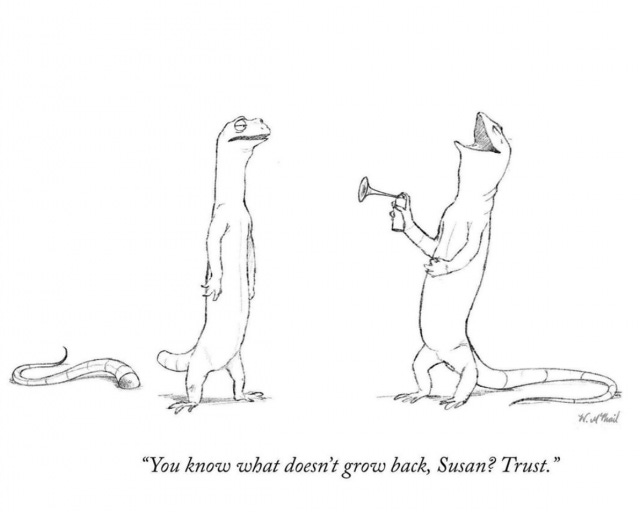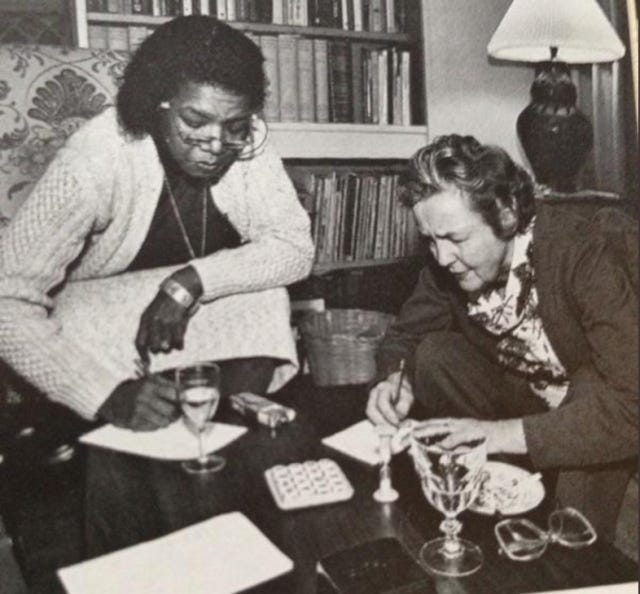The Bluestocking, vol 115: What do you bench, bro?
Happy Friday!
Today I finished a 12-week weightlifting course at my local gym. I've been fascinated by weights since I read Oliver Sacks's wonderful autobiography, On The Move, on holiday in Vancouver a couple of years ago. As a young man, Sacks was - and I cannot stress this enough - crazy. He would ride his motorbike hundreds of miles every weekend to the Grand Canyon, effectively snoozing on it at 100mph. One time, he arrived at the canyon and fell asleep; he woke up to find he'd been lying in a load of toxic fungus. He also took shedloads of drugs, including hallucinogens. There's a brilliant New Yorker piece describing his experiments with a drug called Artane:
"I was in the kitchen, putting on a kettle for tea, when I heard a knocking at my front door. It was my friends Jim and Kathy; they often dropped round on a Sunday morning. “Come in, door’s open,” I called out, and as they settled themselves in the living room I asked, “How do you like your eggs?” Jim liked them sunny side up, he said. Kathy preferred them over easy.
We chatted away while I sizzled their ham and eggs—there were low swinging doors between the kitchen and the living room, so we could hear each other easily. Then, five minutes later, I shouted, “Everything’s ready,” put their ham and eggs on a tray, walked into the living room—and found it empty. No Jim, no Kathy, no sign that they had ever been there. I was so staggered I almost dropped the tray."
Don't do drugs, kids, or you will have to eat three breakfasts all by yourself.
Sacks also benched. Boy, did he bench. He was lifting what sound to me like in-saaane weights. 500lb front squats? That's 226kg. For reference, this morning I was quite pleased with myself for squatting a 20kg bar with 2 x 10kg weights on it. My (female) trainer can squat 110kg. Sacks tore up his quads - the muscles on the front of the thigh - by squatting such large weights. I do not think this will be a problem for me.
Still, there is something pleasing about the raw linear progression in weightlifting. So much of life is capricious and unfair. Bad things happen to good people. Wankers triumph. Your friends die young. But weightlifting? You turn up, you load the rack, and you push. And each time, you can push a little more.
I'm not surprised Oliver Sacks liked lifting: he was always interested in the limits of the body and the mind, and the interaction between the two. Whenever I think about what it means to have a good, full life - particularly without children - I think of his example. He tasted everything, went everywhere, helped everyone he could. He was hungry for life, even though he suffered repeatedly from depression (not least after his mother rejected him for being gay). He filled the unforgiving minute with 60 seconds' worth of distance run.
Not sure I can say the same this week, although it's been busy. I reported from Lib Dem conference on how the party is gambling on a realignment of British politics (and maybe overplaying its hand) and wrote about why rich sex pests are like bad banks: they are too big to fail.
I'm on the News Quiz tonight, Radio 4 at 6.30pm. It was a really nice episode to record; one of those ones where it just feels like larking about with clever, funny people, rather than a terrifying live test of your ability to make an audience laugh.

Until next time -
Helen

Who Would I Be Without Instagram?
There are plenty of well-documented reasons to distrust Instagram — the platform where one is never not branding, never not making Facebook money, never not giving Facebook one’s data — but most unnerving are the ways in which it has led me to distrust myself. After countless adventures through the black hole, my propensity to share, perform, and entertain has melded with a desire far more cynical: to be liked, quantifiably, for an idealized version of myself, at a rate not possible even ten years ago.
I think I am a writer and an actor and an artist. But I haven’t believed the purity of my own intentions ever since I became my own salesperson, too.
I wrote an essay last year which quoted Susan Sontag on photography, which she said had "become a way of refusing experience". Social media, particularly Instagram, often feels the same. Something is only real to you once you've processed it and packaged it for public consumption. (Of course, this is all a bit rich for a writer to complain about: we move through the world, silently sieving our experiences for material to use later.) Tavi, who became famous at the age of about 23 months, and is still only 23, is an incredibly acute observer of modern media culture.
Let's pause a minute over the astounding maturity of this sentence: "Being considered a polarizing figure as a tween had taught me that fame was largely arbitrary and impersonal but could be leveraged to get opportunities and to find an audience for my work." Imagine spending your teenage years in the demented hall of mirrors that is internet fame and coming out this sensible. Tavi also writes that she picks her skin to convince herself that "I am still an advanced child, rather than an average adult." (Relatable.)
Oh, and look at the portraits, too. I hadn't realised until I saw them how much the Instagram #aesthetic has changed in just a few years.
Chaser: I've just ordered Jia Tolentino's Trick Mirror. This interview suggests why.

When the Culture War Comes For The Kids
The bathroom crisis hit our school the same year our son took the standardized tests. A girl in second grade had switched to using male pronouns, adopted the initial Q as a first name, and begun dressing in boys’ clothes. Q also used the boys’ bathroom, which led to problems with other boys. Q’s mother spoke to the principal, who, with her staff, looked for an answer. They could have met the very real needs of students like Q by creating a single-stall bathroom—the one in the second-floor clinic would have served the purpose. Instead, the school decided to get rid of boys’ and girls’ bathrooms altogether.
Within two years, almost every bathroom in the school, from kindergarten through fifth grade, had become gender-neutral. Where signs had once said boys and girls, they now said students. Kids would be conditioned to the new norm at such a young age that they would become the first cohort in history for whom gender had nothing to do with whether they sat or stood to pee. All that biology entailed—curiosity, fear, shame, aggression, pubescence, the thing between the legs—was erased or wished away.
The school didn’t inform parents of this sudden end to an age-old custom, as if there were nothing to discuss. Parents only heard about it when children started arriving home desperate to get to the bathroom after holding it in all day. Girls told their parents mortifying stories of having a boy kick open their stall door. Boys described being afraid to use the urinals. Our son reported that his classmates, without any collective decision, had simply gone back to the old system, regardless of the new signage: Boys were using the former boys’ rooms, girls the former girls’ rooms. This return to the familiar was what politicians call a “commonsense solution.” It was also kind of heartbreaking. As children, they didn’t think to challenge the new adult rules, the new adult ideas of justice. Instead, they found a way around this difficulty that the grown-ups had introduced into their lives. It was a quiet plea to be left alone.
This essay has lots to digest - there's 10,000 words - but the part above struck me. It encompasses one of (IMO) the big weaknesses in current progressive thinking: the belief that you can change the culture by fiat, without the hard work of argument. Perhaps one day gender-neutral bathrooms will be universal and unremarkable, but that will have to be preceded by consultation, education, compromise and practical consideration. Too often what we get instead is cheap, tokenistic gestures, with menaces: I spend a lot of time in theatres, several of which have recently declared their toilets to be "gender neutral". Great! But . . . how am I supposed to use the urinals, please?*
All that's happened is that the theatre has increased the number of loos available to men, without doing anything for women (or, if you like, "non-penised individuals", although I doubt many trans women are desperate to use a urinal either). As Caroline Criado Perez's twitter feed often demonstrates, the "gender-neutral" thoughtlessness extends to stuff like not putting sanitary bins in ex-men's loos. Packer is absolutely right here: students like Q do need accommodating, but biology cannot be "erased or wished away". Smash gender stereotypes! Yep, I'm with you. But also - those are not what is stopping me from having a piss standing up?
* At a recent visit to the Young Vic, my other half returned from the "gender neutral with urinals" room to report that it was full of men who couldn't wee because they were nervous about women walking in. This at least pleased me enormously.

Susan Sontag and The Unholy Practice of Biography
Biographers often get fed up with their subjects, with whom they have become grotesquely overfamiliar. We know no one in life the way biographers know their subjects. It is an unholy practice, the telling of a life story that isn’t one’s own on the basis of oppressively massive quantities of random, not necessarily reliable information. The demands this makes on the practitioner’s powers of discrimination, as well as on his capacity for sympathy, may be impossible to fulfill. However, Moser’s exasperation with Sontag is fuelled by something that lies outside the problematic of biographical writing. Midway through the biography, he drops the mask of neutral observer and reveals himself to be—you could almost say comes out as—an intellectual adversary of his subject.
And look, here's Susan again. My main reason for including this piece, however, is that it's by Janet Malcolm, who I have to confess I assumed was dead. She once wrote a profile entirely through intros, called "41 False Starts". That in turn, inspired the unimprovable Twitter account, Steve Baker New Yorker Profiles: "On 2 May, 2019, Steve Baker, the Conservative MP, gave a young aide a lesson on military strategy. "Remember, war isn’t just about these—" In his hand was the .50 cal bullet he uses as a paperweight. "It’s also about this—" Smiling, he drummed a tight fist against his heart."
As for Sontag, what an epitaph: "My life is a brutal anecdote."
Guest cartoon:

I have laughed at this approximately three times a week since I first saw it. Caroline Criado Perez has taken to sending to me the laughing lizard's face every time she makes a mean joke about me. (I, of course, never make mean jokes about her.) It's by Will McPhail and he is a genius.
Quick Links:
I did not know that Byker Grove ended by nuking the fourth wall.
This is NSFW but made me howl with laughter.
I sort of assume this is what all theatre directing is.
Kathleen Stock is extremely brave, and academic philosophy - a discipline about asking questions - is having a wild time.
I leave you with Jessica Mitford and Maya Angelou playing Boggle. Another two lives well-lived.

If you like this email, tell a friend. The sign-up link is tinyletter.com/helenlewis

